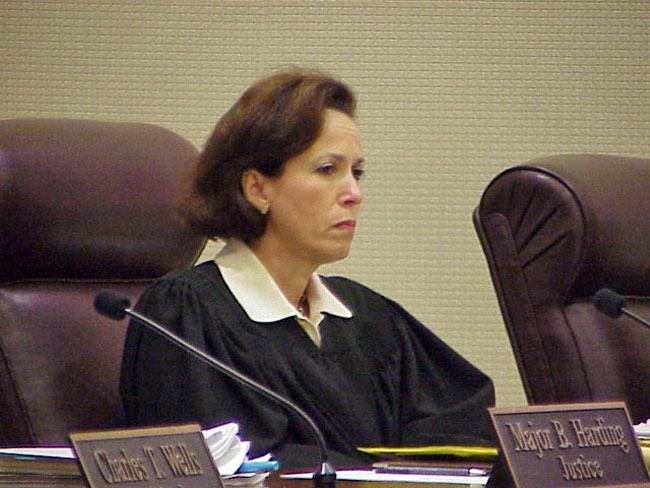
Florida Supreme Court Justice Barbara Pariente is on a crusade to change how courts treat eyewitness expert testimony, writing in a strongly-worded opinion on Thursday that the state’s approach lags decades behind scientific evidence.
Pariente issued her latest comments on the issue in a concurring opinion in a case in which she and the other justices unanimously rejected Death Row inmate Charles Peterson’s claim that his lawyer’s failure to use an eyewitness identification expert constituted ineffective assistance of counsel.
In the eight-page opinion joined by Justice Peggy Quince, Pariente also said that previous Supreme Court rulings may have left the impression that eyewitness expert testimony is inadmissible. Instead, Pariente wrote, such expert testimony should generally be allowed to help juries decide on the reliability of eyewitnesses, especially in cases that rest substantially or entirely on eyewitnesses.
“Specifically, I would adopt the rationale of the Supreme Court of Connecticut … and conclude that this Court’s precedent, which suggests that factors affecting eyewitness testimony are within the common experience of jurors, is ‘out of step with the widespread judicial recognition that eyewitness identifications are potentially unreliable in a variety of ways unknown to the average juror,'” Pariente wrote.
Pariente noted that the Innocence Commission appointed by the high court to analyze wrongful convictions highlighted eyewitness misidentification, which has been a factor in 75 percent of convictions later exonerated through DNA evidence nationally.
The current eyewitness expert standard is based on a 31-year-old death penalty cases involving Paul Beasley Johnson in which the Supreme Court decided that “a jury is fully capable of assessing a witness’ ability to perceive and remember…without the aid of expert testimony.”
But since then, social scientists have identified a variety of factors that contribute to misidentification. Courts in New Jersey, Utah, Oregon and Connecticut also allow expert testimony in eyewitness cases, Pariente wrote.
“As the burgeoning body of scientific research indicates and courts across the country increasingly recognize, expert witness testimony on the reliability of eyewitness identifications can be a ‘powerful tool in helping the criminal justice system achieve its goal of convicting the guilty while acquitting the innocent,'” she wrote.
Eyewitness identification is compelling testimony that often leads to convictions, said Seth Miller, executive director of the Innocence Project of Florida. But it is “naïve” to assume that jurors know enough to assess the reliability of an eyewitness, he said.
“Jurors can be prejudiced and overly compelled by that seminal moment in a trial where the defendant points at a person and says, ‘That is the person who raped me.’ And that can overshadow all of the other infirmities that exist with how the eyewitness identification may have happened,” Miller said. “That’s the kind of stuff these experts talk about and testify to. And these are things that jurors don’t know about … but they’ve been studied and proven in an uncontradicted way by people within the social science community over the past 30 years.”
–Margie Menzel, News Service of Florida
![]()
Justice Pariente’s Cconcurrence on Expert Testimony and Eyewitness Identification





























reality hits hard says
what illegal act has she herself committed that she is afraid a witness will eventually bring out to public light?….
Here Come The Judge says
Judges need to be judged themselves by another judge, or two, or three !!!
Lin says
Interesting article
The judge is pre-judging the jurors and in a way trashing the whole judicial system
If a jury of your peers isn’t good enough for Justice Pariente, then who?
John Smallberries says
Good. If you’re going to take someone to trial, you should need more than eyewitness testimony, especially how ridiculously unreliable it is. The Brenton Butler case is a classic example of that, and I highly recommend that anyone who thinks justice is involved in either the prosecutorial side of law or the enforcement side watch Murder on a Sunday Morning. I know it’s painting with a broad brush, but prosecutors really only care about conviction rates and not innocence, and detectives only really care about confessions regardless of innocence. Taking away eyewitness testimony will go really far towards making sure that there is actual evidence.
John Bigbooty says
It’s all a story, sometimes the physical bits tell it, sometimes you need people to tell it, sometimes you only have the peoples version. That’s why we use a group of people to decide.